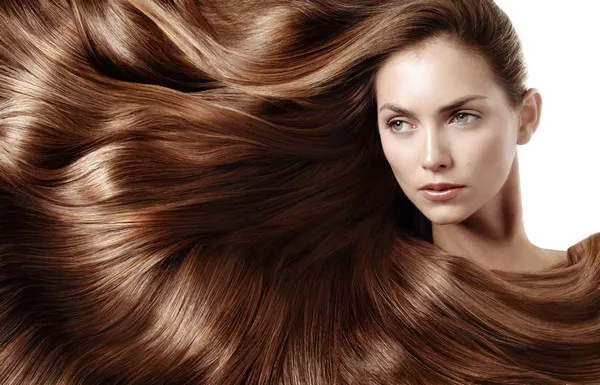Water is often hailed as the elixir of life, essential for our overall well-being. While we know its importance for our bodily functions, including maintaining hydration, it is no secret that water plays a crucial role in the health of our hair as well. Many people wonder if simply drinking more water can lead to increased hair growth. In this article, we will explore the connection between water intake and hair growth to determine if there is any truth to this popular belief.
I. Understanding Hair Growth:
To comprehend the impact of water on hair growth, it’s important to grasp the basics of the hair growth cycle. Hair follicles undergo a continuous cycle of growth, rest, and shedding. The growth phase, known as anagen, lasts for several years, followed by the resting phase, called telogen, which lasts for a few months before shedding. Each hair follicle operates independently, which means that not all follicles are in the same phase simultaneously.
II. Hydration and Hair Health:
The Role of Water in Hair Health
Water is fundamental to maintaining overall hydration levels in our bodies. Our hair shafts are composed of approximately 25% water, and when they become dehydrated, they can become weak, brittle, and prone to breakage. Ensuring adequate water intake can help maintain the natural moisture balance of the scalp and hair, keeping them healthy and resilient.
III. Debunking the Myth: Can Drinking Water Increase Hair Growth?
Water and Hair Growth
While water is crucial for overall hair health, it’s important to differentiate between hydration and hair growth. While staying hydrated is essential, solely increasing water intake is unlikely to directly stimulate hair growth. The rate of hair growth is mainly determined by factors such as genetics, age, hormone levels, and nutrient availability.
IV. The Nutritional Connection:
Importance of Nutrients for Hair Growth
To promote healthy hair growth, a well-balanced diet rich in essential nutrients is vital. Although water itself does not provide direct nourishment to hair follicles, it aids in the absorption and transportation of vital nutrients to the scalp and hair roots. Consuming a nutrient-dense diet that includes vitamins, minerals, and proteins is crucial for providing the necessary building blocks for hair growth.
V. Balancing Hydration and Hair Care:
Optimal Water Intake
While drinking water alone may not be a magic potion for hair growth, maintaining proper hydration levels remains crucial. The Institute of Medicine suggests an average daily intake of about 3.7 liters for men and 2.7 liters for women, including all fluids and foods with high water content. This recommendation can vary based on factors such as climate, physical activity, and individual needs.
Hydrating the Scalp
Proper hydration of the scalp is equally important for healthy hair growth. Regularly washing your hair with water and a mild shampoo helps remove excess oil, debris, and product buildup, creating a clean and conducive environment for hair follicles. However, excessive washing can strip the hair and scalp of natural oils, leading to dryness. It’s crucial to strike a balance by keeping the scalp clean without overwashing.
VI. Holistic Hair Care Practices:
Complementary Hair Care Habits
While drinking water may not directly influence hair growth, adopting holistic hair care practices can contribute to overall hair health. This includes:
1.A nutrient-rich diet: Incorporating foods rich in vitamins A, C, E, biotin, and minerals like zinc and iron can support hair growth and prevent deficiencies that may hinder healthy hair.
2.Gentle hair care routine: Avoiding excessive heat styling, chemical treatments, and rough handling of the hair can minimize damage and breakage, allowing the hair to grow longer and stronger.
3.Scalp massage: Massaging the scalp stimulates blood circulation, which helps deliver essential nutrients to the hair follicles. Additionally, it can reduce stress and tension, which are known to contribute to hair loss.
4.Protection from environmental factors: Shielding your hair from harsh sunlight, extreme weather conditions, and pollutants can prevent damage and maintain its health. Wearing a hat or using protective hair products can help safeguard your hair from external stressors.
5.Adequate sleep and stress management: Getting enough restful sleep and managing stress levels are crucial for overall well-being, including the health of your hair. Lack of sleep and chronic stress can disrupt the hair growth cycle, leading to hair thinning and loss.
VII. Seeking Professional Advice:
If you are concerned about hair growth or experiencing excessive hair loss, it is recommended to consult a dermatologist or trichologist. These experts specialize in hair and scalp health and can provide personalized guidance and treatments tailored to your specific needs.
Conclusion:
While water is undeniably vital for overall health and plays a role in maintaining the hydration of your hair and scalp, it alone cannot directly increase hair growth. Hair growth is a complex process influenced by a variety of factors, including genetics, hormones, and nutrition. However, staying hydrated by consuming an adequate amount of water and adopting a holistic approach to hair care can contribute to maintaining healthy hair and creating a favorable environment for growth. Remember, a balanced diet, gentle hair care practices, and overall well-being are key elements in supporting optimal hair health and growth. So, drink up, take care of your hair, and embrace a healthy lifestyle for a crowning glory you can be proud of.

